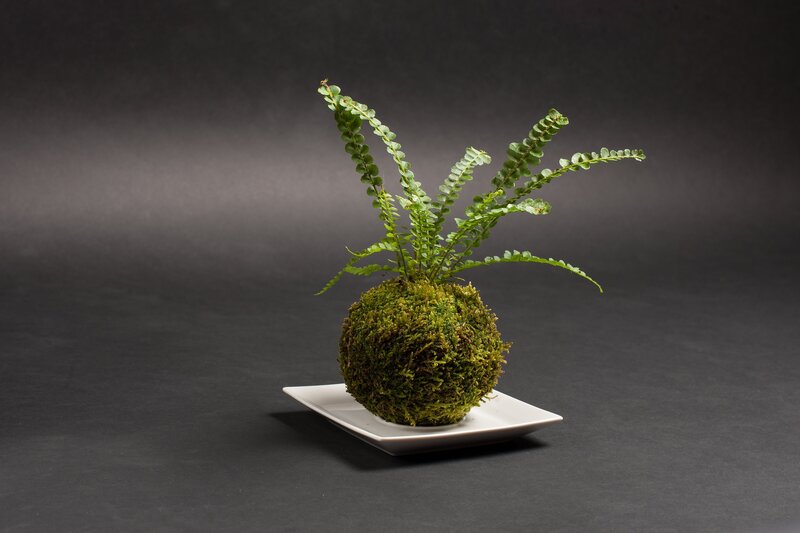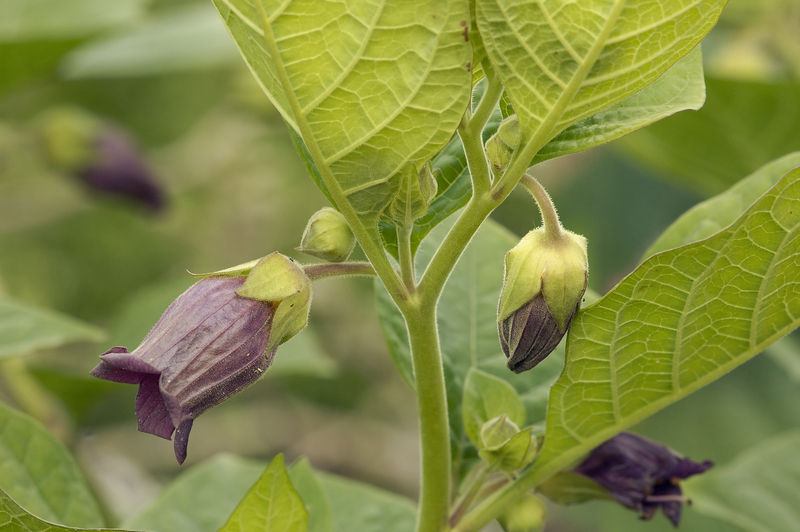A Beginner's Guide to Cultivating Herbs
Posted on 31/05/2025
A Beginner's Guide to Cultivating Herbs
Are you eager to bring the fresh flavor of garden herbs into your kitchen? Cultivating herbs at home is not only rewarding but also surprisingly easy for beginners. This comprehensive guide will uncover everything you need to know about growing herbs, from setting up your first herb garden to harvesting and preserving your flavorful crops. Whether you have a windowsill, balcony, or backyard patch, follow this beginner-friendly guide to start your own herb oasis!
Why Grow Your Own Herbs?
- Freshness: Homegrown herbs offer unmatched aroma and taste compared to store-bought alternatives.
- Cost-Effective: Growing herbs saves money spent on packaged bunches that often wilt quickly.
- Convenience: Snip what you need, when you need it, right from your kitchen or garden.
- Therapeutic Value: Gardening soothes the mind, supports well-being, and provides a productive hobby.
- Decorative Touch: Lush green herbs add beauty and life to any indoor or outdoor space.

Choosing the Right Herbs for Beginners
Not all herbs are created equal when it comes to ease of cultivation. Some thrive with minimal fuss, making them perfect for first-time gardeners. Here are some foolproof choices:
- Basil: A sun-loving herb that's essential in Italian cuisine.
- Mint: Hardy and vigorous, but best grown in containers to prevent spreading.
- Chives: Mild onion flavor, perfect for garnishing dishes.
- Parsley: Versatile and hardy; flat-leaf varieties are especially flavorful.
- Cilantro (Coriander): Popular in many cuisines, but bolts quickly in heat.
- Thyme: Aromatic and drought-tolerant.
- Rosemary: Woody and fragrant, thrives with little care once established.
- Oregano: Essential for Mediterranean dishes and drought-resistant.
Pro Tip:
Start with 2-3 easy herbs to master their care before expanding your collection.
Understanding Growing Conditions for Herbs
Light Requirements
Most common culinary herbs require at least 6 hours of sunlight daily. South-facing windows or sunny garden plots are ideal for optimal herb cultivation. If sunlight is limited, consider grow lights designed for indoor gardening.
Soil and Drainage
Herbs prefer well-draining soil. Use a light potting mix enriched with compost, or amend garden beds with organic matter. Good drainage is crucial; soggy roots can lead to diseases.
Watering Needs
While some herbs (like basil) enjoy consistently moist soil, others (such as rosemary and thyme) prefer it to dry slightly between waterings. Always check the soil moisture before watering; overwatering is a common beginner's mistake.
Step-by-Step: Starting Your Herb Garden
1. Decide Between Indoor and Outdoor Gardening
- Indoor gardening allows year-round herb production and easy access for cooking.
- Outdoor gardens let you grow larger quantities and a greater diversity of herbs.
2. Select Containers or Garden Beds
- Containers: Choose pots with drainage holes. Terracotta, ceramic, or recycled containers all work well.
- Raised Beds or Plots: Ensure the site receives sufficient sunlight and amend soil as needed.
BONUS: Herbs like mint and oregano are best contained to prevent spreading in garden beds.
3. Gather Essential Supplies
- Pots, trays, or garden bed space
- Potting mix or quality garden soil
- Herb seeds or starter plants (seedlings)
- Watering can or spray bottle
- Labels for marking plant varieties
4. Sowing Seeds vs. Planting Seedlings
Sowing Seeds: Cheaper and offers more variety, but may take longer and need consistent care when starting.
Transplanting Seedlings: Faster results and helpful for trickier herbs--buy from a local nursery for best success.
- Sow seeds in moist soil, barely covering them with mix--most herb seeds need light to sprout.
- Keep pots covered with plastic wrap until seedlings emerge, then move to a sunny location.
5. Watering and Feeding Your Herbs
Check soil moisture regularly. Most herbs require watering when the top inch of soil is dry. Use a diluted, balanced liquid fertilizer every few weeks to encourage lush growth.
- Avoid overfertilizing. Too much fertilizer makes herbs less flavorful!
Troubleshooting Common Problems
Pests
- Aphids and whiteflies may appear on tender leaves--spray with a gentle soap solution.
- Slugs: Use copper tape around pots or spread crushed eggshells to deter them outdoors.
- Fungal diseases: Prevent with good air circulation and avoid wetting foliage.
Leggy Seedlings
If your seedlings are tall and spindly, they probably need more light. Move them to a sunnier spot or use grow lights.
Yellowing Leaves
Usually a sign of overwatering or poor drainage. Allow soil to dry between watering and ensure pots have holes.
Tips for Harvesting and Using Your Herbs
When and How to Harvest
- Leafy herbs (like basil and parsley):
Pinch off leaves regularly from the top to encourage bushier growth. - Woody herbs (like rosemary and thyme):
Snip stems, but avoid taking more than one-third of the plant at a time.
The best time to harvest is in the morning after dew dries but before the sun is intense; this preserves essential oils for maximum flavor.
Preserving Your Bounty
- Drying: Tie stems in small bundles and hang upside down in a dry, well-ventilated area.
- Freezing: Chop herbs and freeze in olive oil or water in ice cube trays for easy future use.
Creative Ways to Use Fresh Herbs
- Mix chopped basil, parsley, and oregano into homemade tomato sauce.
- Infuse mint into teas, lemonades, or cocktails for a refreshing twist.
- Blend cilantro into salsas, guacamole, or curry pastes.
- Use thyme or rosemary sprigs to flavor roasted vegetables or meats.
- Make your own herbal butters, vinegars, or oils for gourmet dishes.
Best Practices: Maintaining a Healthy Herb Garden
- Regularly prune to encourage full, bushy growth and prevent premature flowering ("bolting").
- Rotate indoor pots so all sides get sunlight, keeping plants from leaning.
- Watch for signs of stress such as yellow leaves, wilting, or poor growth.
- Refresh soil annually in containers--even the best potting mix depletes over time.

Frequently Asked Questions About Growing Herbs
Can I grow herbs all year indoors?
Yes! With enough light--natural or from LED grow lights--many herbs thrive inside year-round.
Which herbs grow well together?
Broadly, pair herbs with similar water/sun needs. Mediterranean herbs (rosemary, oregano, thyme, sage) thrive together, while the likes of basil, parsley, and chives prefer more moisture.
Do I need fertilizer for herbs?
A light application every month during the growing season supports healthy growth. Avoid high-nitrogen fertilizers, as they can dilute herb flavor.
How long does it take to grow herbs?
Many herbs go from seed to first harvest in just 4-8 weeks. Fast growers include basil and cilantro; woody herbs like rosemary take longer to mature.
Conclusion: Start Your Herb-Growing Journey Today
Cultivating herbs is a simple, rewarding gateway into gardening. With the basics covered in this beginner's guide to growing herbs, you can enjoy fresh flavors, aromatic leaves, and vibrant greenery year-round. Whether you have a sunny kitchen shelf or a garden patch, there's an herb perfect for your space and taste.
So grab some seeds, pots, and a splash of sunlight--and let your own herb garden flourish!
Further Resources
- The Herb Society of America (herbsociety.org)
- American Horticultural Society
- Local Cooperative Extension Services
Ready to begin your adventure in cultivating herbs? Share your progress, questions, and favorite herbal recipes in the comments below!
Latest Posts
Top 3 Tips to Keep Your Garden Weed-Free and Thriving
Gardening on a Budget: 5 Low Maintenance Tips
How a Simple Garden Can Make Big Impacts on Climate Change

